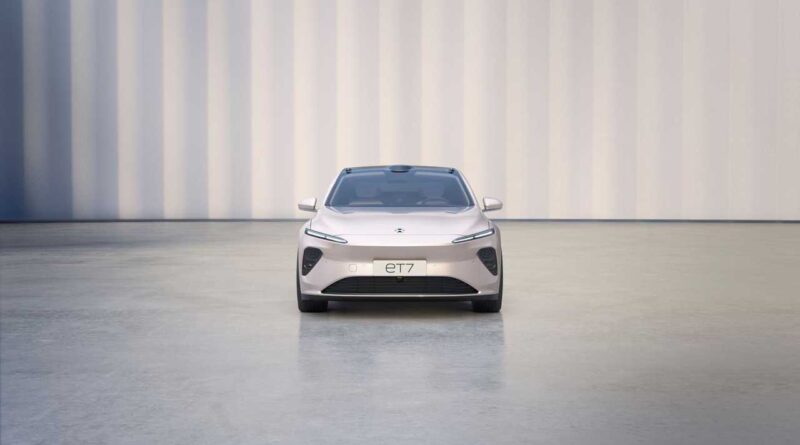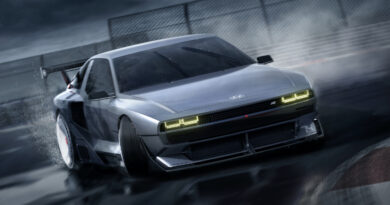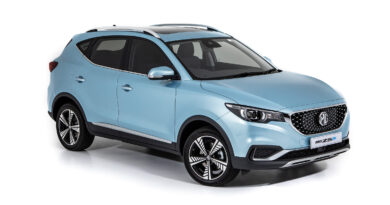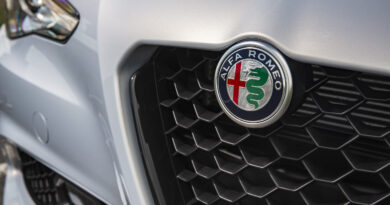Tesla and Rolls-Royce ambitions: Nio ET7 EV aims high
The race to create the world’s best electric car is heating up with Chinese car maker Nio unveiling the sleek and luxurious ET7.
The Nio ET7 boasts a raft of technology, elegant design and materials and an impressive artillery of electric hardware to make it one of the longest-range production EVs in the world.
While the smallest 70kWh battery pack provides a range of 500km, the largest 150kWh battery (there’s also a 100kWh battery) for the ET7 has a claimed electric range of up to 1000km.
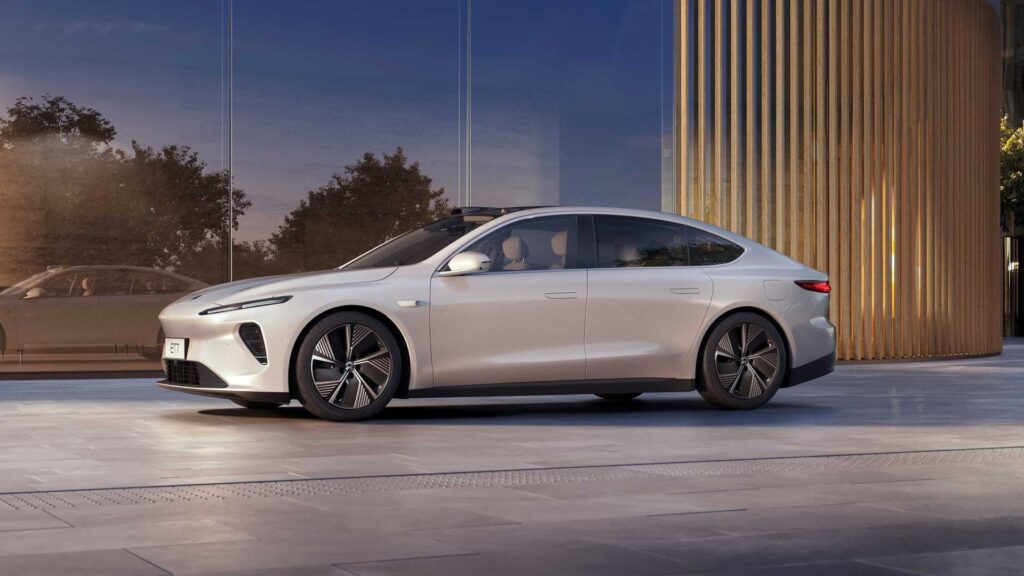
Two electric motors drive all four wheels and combine to make 480kW and 850Nm, which is claimed to accelerate the ET7 to 100km/h in 3.9 seconds.
Those range figures are for the more generous NEDC rating, not the newer WLTP one that would likely lower the claimed travel distances between charges.
Still, in any language they’re impressive figures.
With a low 0.23 coefficient of drag – matching that of the Tesla Model 3 – the ET7 has an intense focus on efficiency.
The Nio ET7 clearly has Tesla in its crosshairs but could also challenge the world’s oldest car maker, Mercedes-Benz, and its upcoming EQS limousine – especially in Nio’s home country of China.
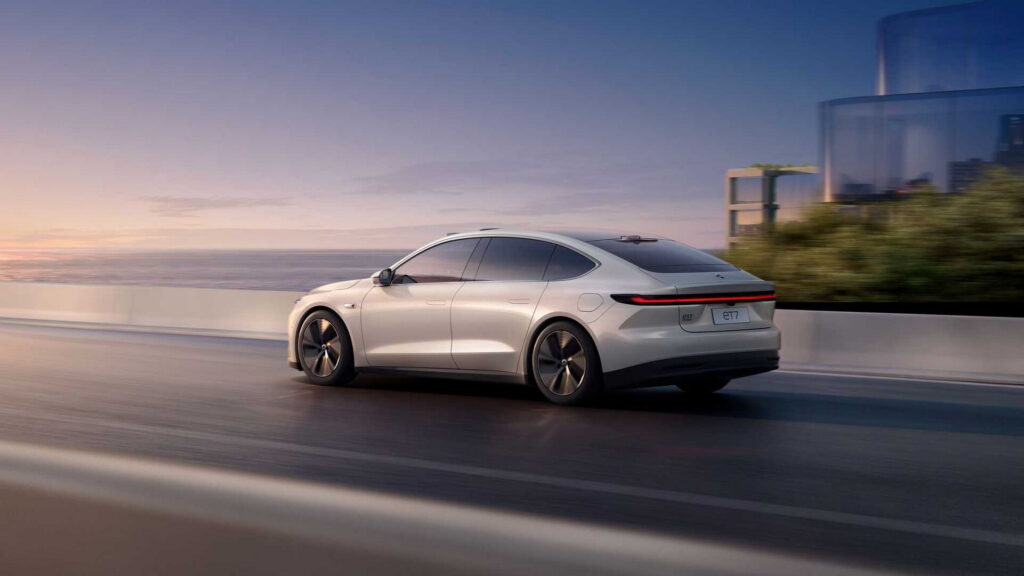
Under the tagline “ready for tomorrow” the Nio ET7 is also set to challenge EV newcomers such as the Lucid Air and upcoming Fisker Ocean and other upcoming Fisker EVs.
Tesla innovation, Mercedes-Benz quality
As with those cars the design is modern and fresh, with an emphasis on quality materials and a clean, bold look.
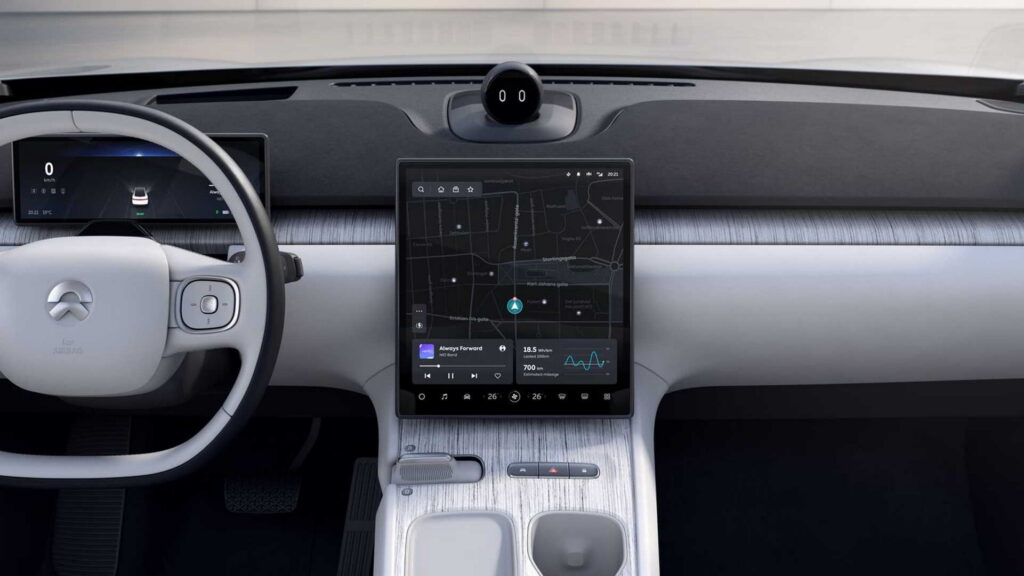
Inside, it is the first production car to have surfaces finished in Karuun, or Rattan, which is a fast-growing wood that is hand harvested in Indonesia; the material featured on the Mercedes-Benz Vision AVTR concept car shown at the Consumer Electronics Show in 2020, but Nio has beaten Benz in fitting it to a production car.
Nio says the ET7 has “invisible smart air vents” that help “make the cabin sophisticated and cozy” as well as “waterfall ambient lighting”.


As with some Teslas, the interior is about restraint and a focus on the digital screens, one in front of the steering wheel for the instruments and warnings and the other a near-square 12.8-innch display in the centre console for infotainment and other functions.
There’s also a personified digital assistant called Nomi – the circular black pod atop the dashboard – complete with artificial intelligence and voice recognition.
The audio systems has a 23-speaker system arranged in a 7.1.4 channel setup; while it isn’t mentioned, the configuration suggests it could be a Dolby Atmos system that provides more immersive surround sound.
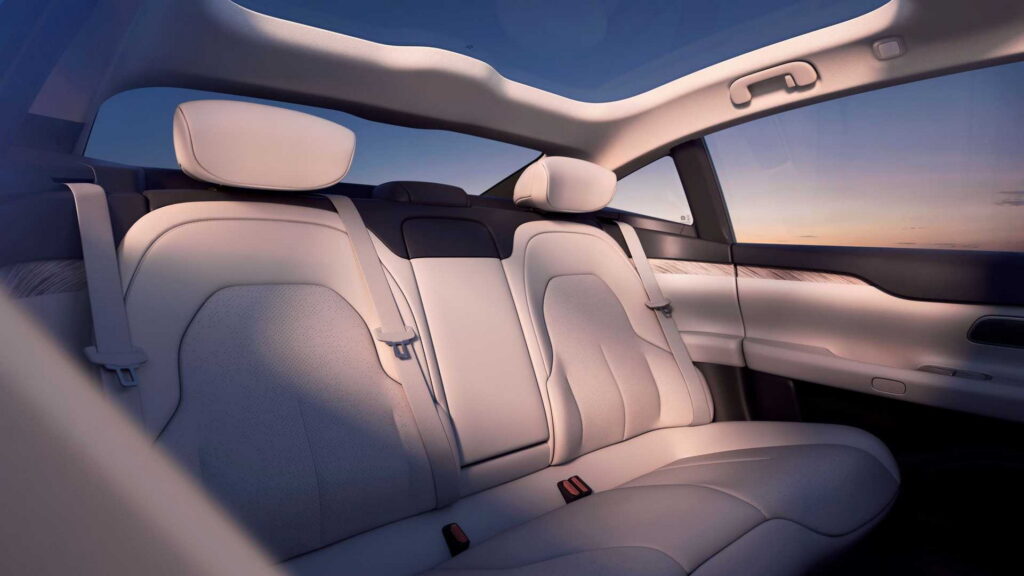
The ET7 has frameless windows and soft-closing doors as well as exterior LED lighting that illuminates across the car like some Audis and Lamborghinis.
Nio ET7 sizes up to limousines
At 5098mm long, 1987mm wide and riding on a wheelbase of 3060mm the Nio ET7 is also big – outstretching the Tesla Model S. It’s only slightly shorter than the new Mercedes-Benz S-Class (5179mm in regular guise or 5289 as a long wheelbase) that goes on sale this year and includes a plug-in hybrid model called S580e.
Comfort is also a major focus and there are aspects similar to some of the systems used in new Rolls-Royces.
The suspension has adjustable dampers that use sat-nav mapping data and “high-resolution sensors” that “detects the road conditions in advance and actively adjusts the suspension”.
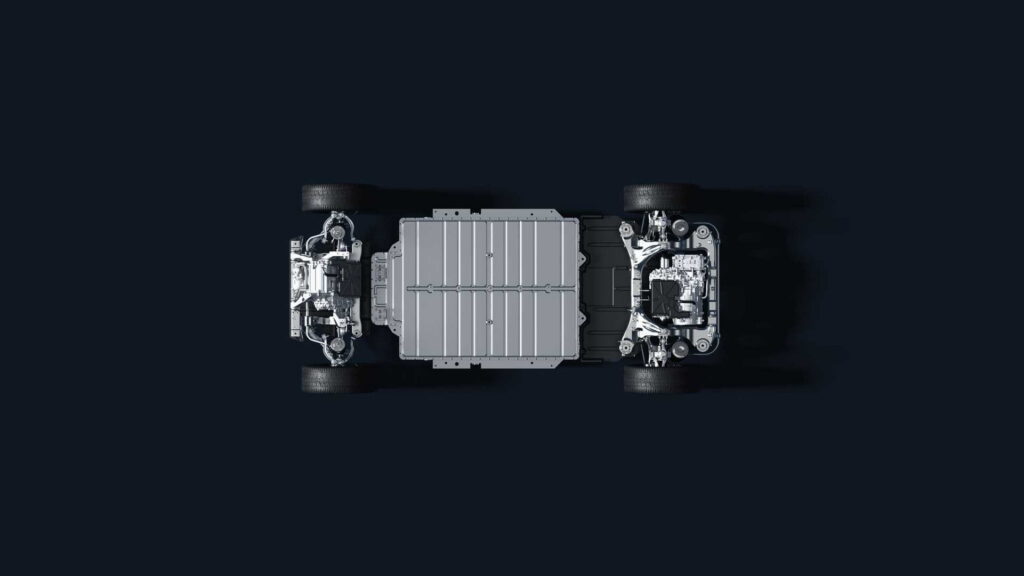
In total Nio says the ET7 has 33 sensors, including 11 high-resolution cameras (you can see some on the roof and sides of the car), five radars, 12 ultrasonic sensors and a Lidar (or laser radar), the latter the one Elon Musk says is not required for autonomous driving.
The ET7 sells from 378,000 yuan, or about $75,000.
However, there’s one big catch. For that money it doesn’t come with any batteries. You have to lease batteries as part of a battery swap program that is only available in China.
If you want an ET7 with batteries included the starting price is 448,000 yuan, or around $89,000.
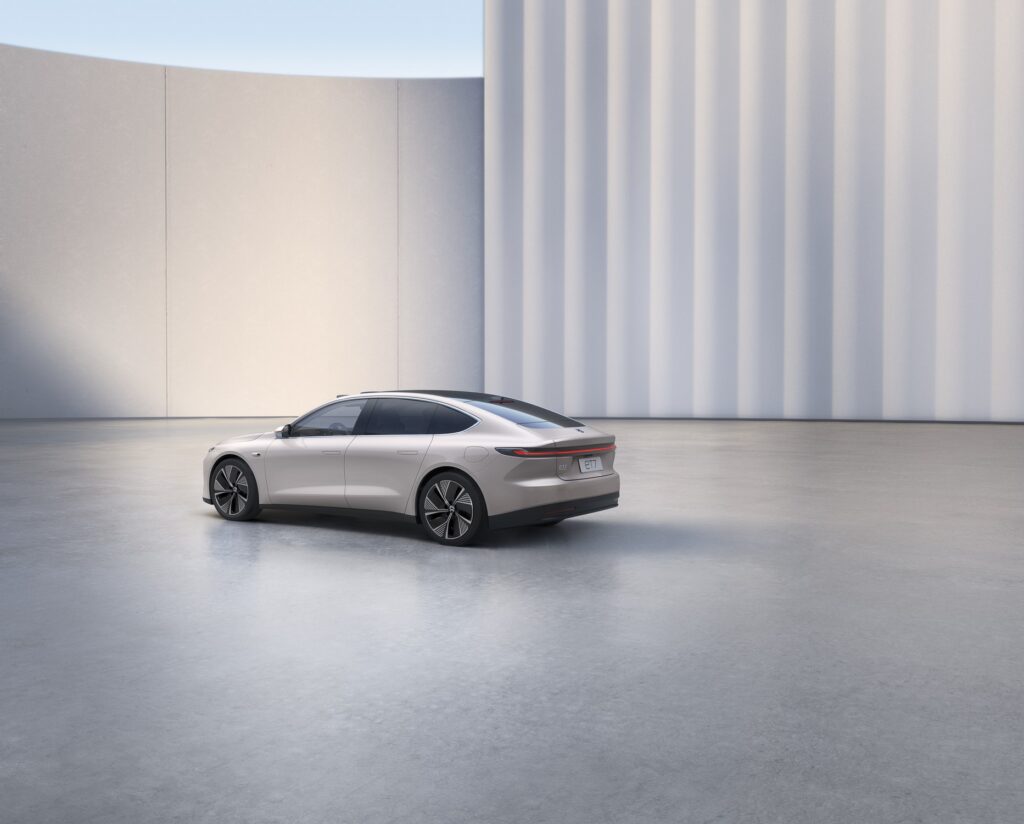
Obviously those prices don’t include local taxes – including Australia’s controversial luxury car tax (LCT) – which would push the ask into six figures.
However, we’re not aware of any plans for the Nio in Australia yet.
The ET7 is not the first time Nio has challenged the automotive world status quo.
The company has a strong presence in the Formula E championship and its driver, Nelson Piquet Jr, won the inaugural 2014/2015 championship driving the car prepared by the Nio 333 FE team.
And in 2016 Nio created the radical EP9 electric supercar, which has four electric motors creating a combined 1000kW.
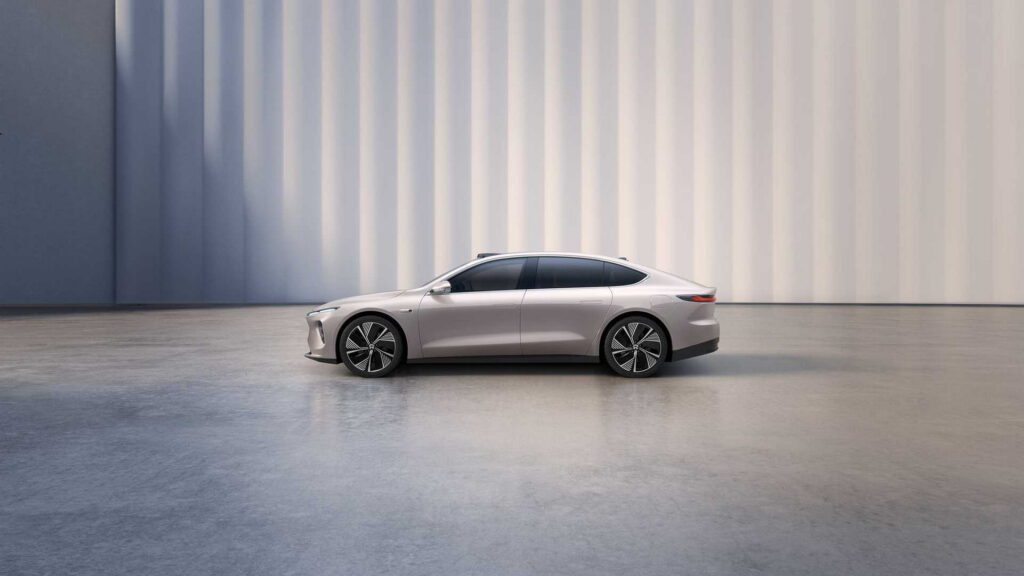
The Nio EP9 went on to set an electric car lap record at the infamous Nurburgring, posting a time of 7 minutes, 5.12 seconds – only a few seconds slower than a V12-powered Lamborghini Aventador.
Nio is virtually unheard of in countries such as Australia but is known for its high-end EVs in China.
The Nio ET7 is set to stretch that.
Key to Nio’s business model is an innovative battery swap system.
By creating quick battery exchange facilities Nio can sell cars without the driver having to pay for the battery; instead they lease it, reducing one of the big hurdles of owning an EV – the price of entry.

